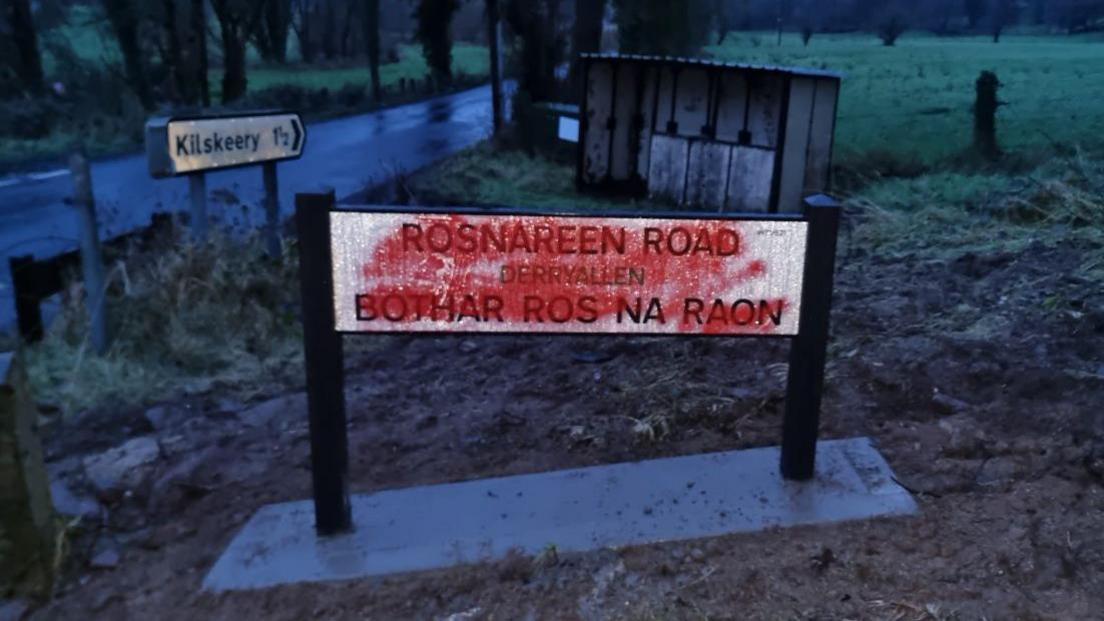Anti-Irish language rhetoric 'emboldens' vandals
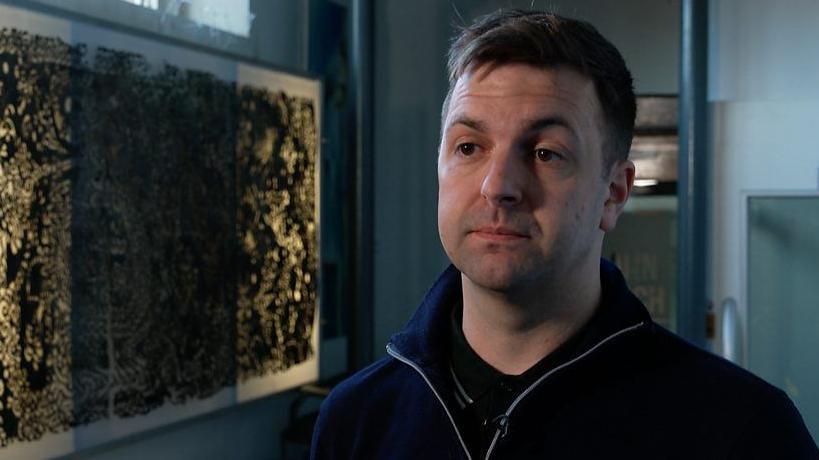
Conchúr Ó Muadaigh says the deliberate destruction of signage is "entirely unacceptable"
- Published
Rhetoric opposing the Irish language has "emboldened" vandals to attack bilingual street signs, an Irish language campaigner has said.
Conchúr Ó Muadaigh from Conradh na Gaeilge (the Gaelic League) was speaking after an attack in which a sign was damaged with an angle grinder in Belfast.
The Police Service of Northern Ireland (PSNI) is investigating the incident in which an Irish language section of a sign was cut out in Shandon Park on Saturday night.
Leading unionist politicians condemned the attack but also warned against "imposing" Irish in areas where a majority of residents voted against bilingual signs.
The Ulster Unionist Party leader Mike Nesbitt and Traditional Unionist Voice (TUV) Deputy Leader, Ron McDowell, both said they opposed vandalisation of street signs.
However, the politicians warned that erecting bilingual signage in streets where the policy was opposed could lead to "civil disobedience" and further vandalism.
The PSNI said they were treating the incident in Shandon Park as "hate-motivated criminal damage".
"One line of enquiry that police are investigating is that the suspect who was holding an angle grinder shouted verbal abuse at a man," a spokesman added.
Last December, BBC News NI revealed that bilingual street signs in Northern Ireland had been vandalised more than 300 times in the previous five years.
Almost half of residents objected
In the Belfast City Council area, bilingual street signs can be erected at the request of residents, developers or elected politicians.
However, if councillors representing that area believe the signs may have an adverse impact on community relations, a survey of the street's residents will be conducted.
If 15% or more of all occupants state they want a bilingual sign, the request is then referred to the council's People and Communities Committee for a final decision.
When a survey was conducted among the residents of Shandon Park, 16.8% of those who took part wanted new place name signs in both English and Irish.
That was enough to get the People and Communities Committee to consider the matter during its monthly meeting in June.
However, almost half (49.59%) of the residents opposed any change, external and the committee was asked to "exercise discretion" given the weight of local objections.
'Deeply troubling'
Speaking to the BBC's Good Morning Ulster programme, Mr Ó Muadaigh insisted that the "deliberate destruction" of public signage was "entirely unacceptable".
"I find it deeply troubling that on Saturday night a person was seen walking around with an industrial-type tool to vandalise Irish language place names," he said.
The campaigner pointed out that the Shandon Park incident followed "threats made by loyalist paramilitaries just over two weeks ago".
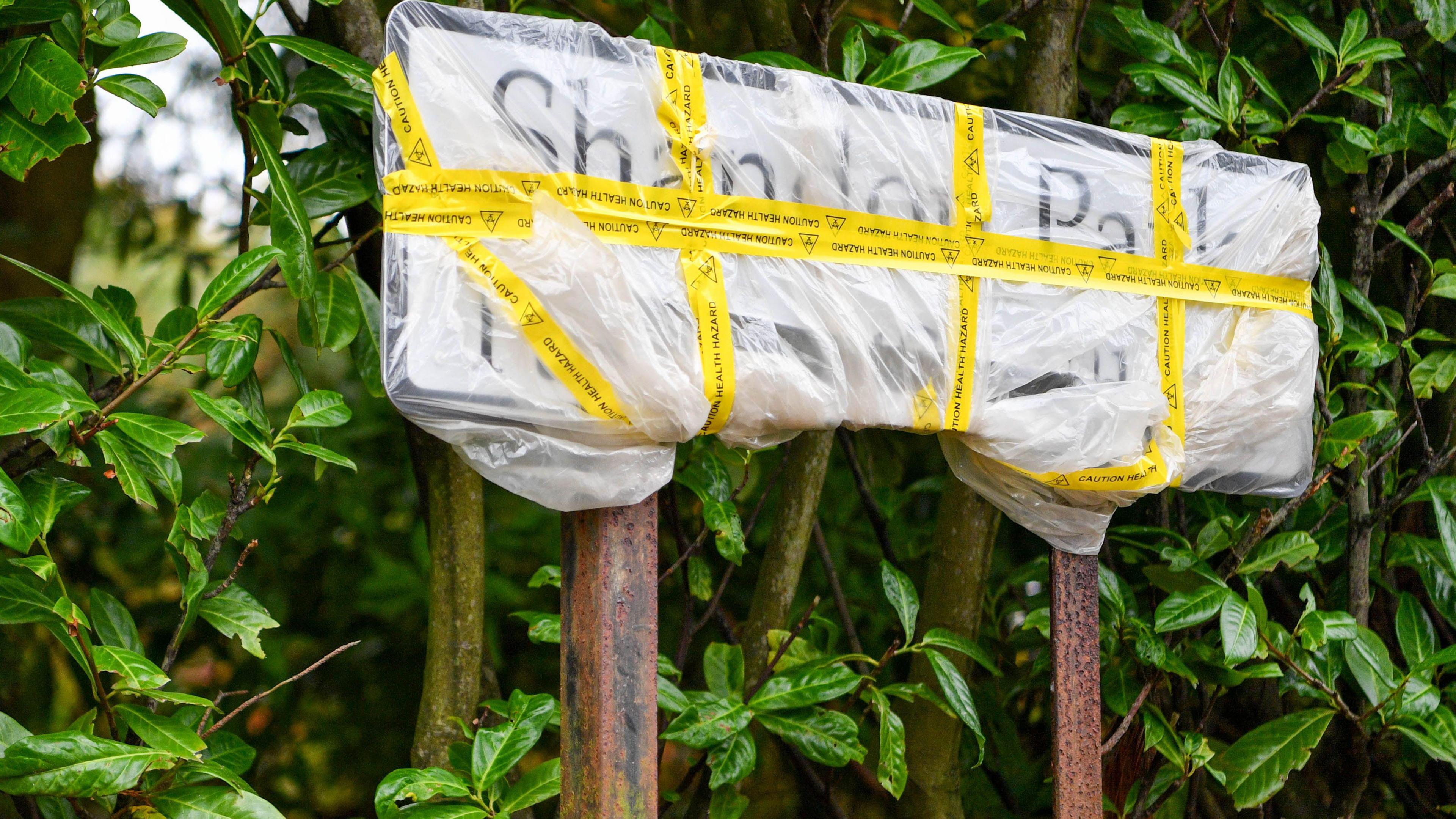
A sign at Shandon Park was damaged on Saturday evening
On 1 October, the Sunday Life newspaper, external reported that loyalists were planning an arson campaign to destroy Irish signage on council buildings and vehicles in Belfast.
The threat followed a vote by Belfast City Councillors to adopt a new draft policy to extend the use of Irish, including on council transport and workers' uniforms.
"Much of the recent rhetoric around the Irish language appears to be designed to stoke tensions and deepen divisions," Mr Ó Muadaigh said.
He claimed a lack of leadership in challenging that rhetoric created a vacuum in which people "feel emboldened" into thinking such attacks are "normal".
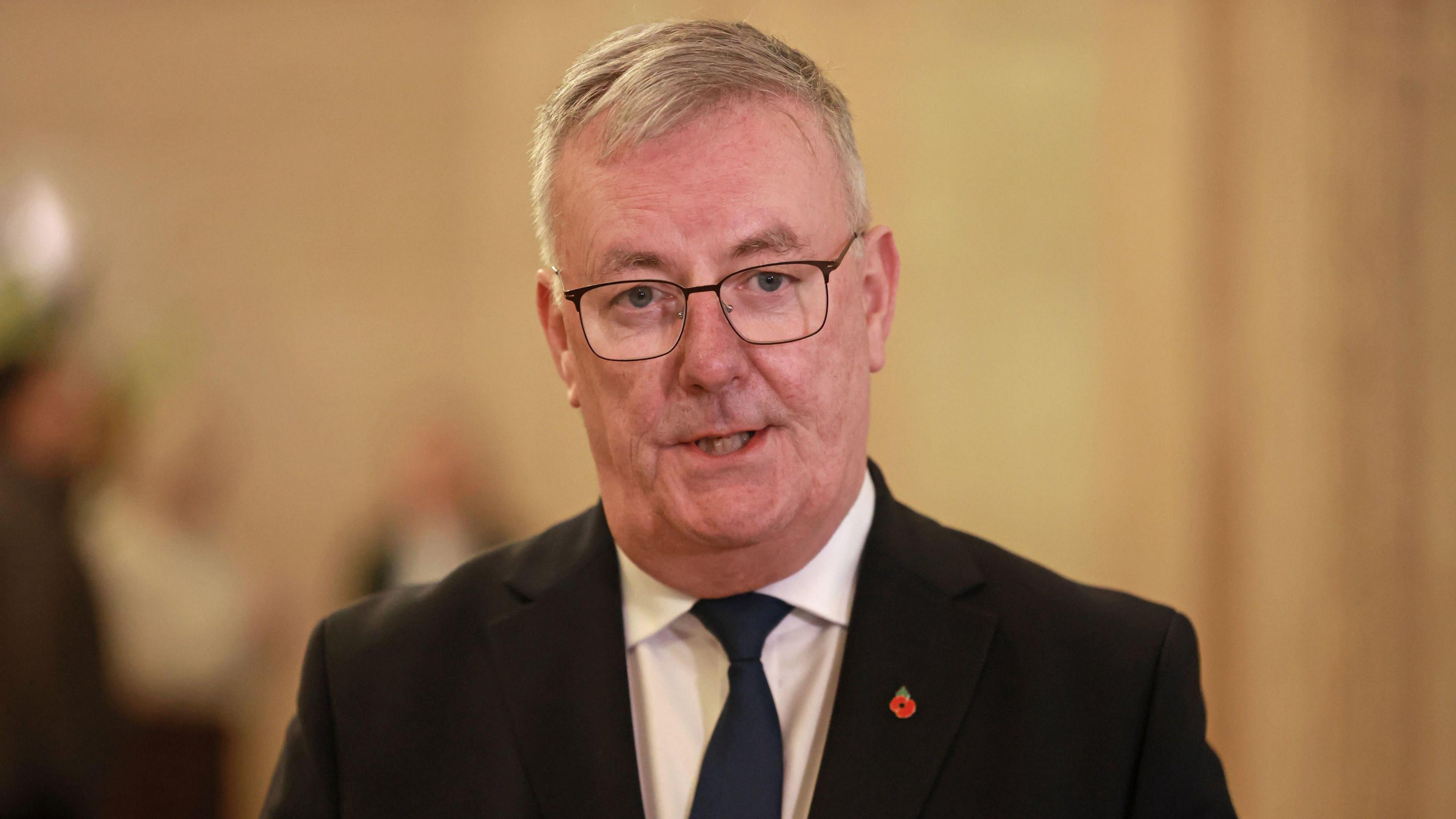
Mike Nesbitt called on those who had campaigned for Belfast City Council's new Irish language policy "to think again about the implications"
Asked about the Shandon Park incident on the Nolan Show, the UUP leader said: "That act was wrong, pure and simple, and so I condemn it without reservation."
However, Nesbitt added that "defacing signs was nothing new" and pointed out that republicans have regularly vandalised signs showing the place name "Londonderry".
He also cited the example of "Welcome to Northern Ireland" signs which sustained bullet holes when erected along the border by an ex-UUP minister some years ago.
"I have no problem with the Irish language, except that it was weaponised by the republican movement some years ago.
"That famous phrase: 'Every word spoken is a bullet fired,'" Nesbitt said.
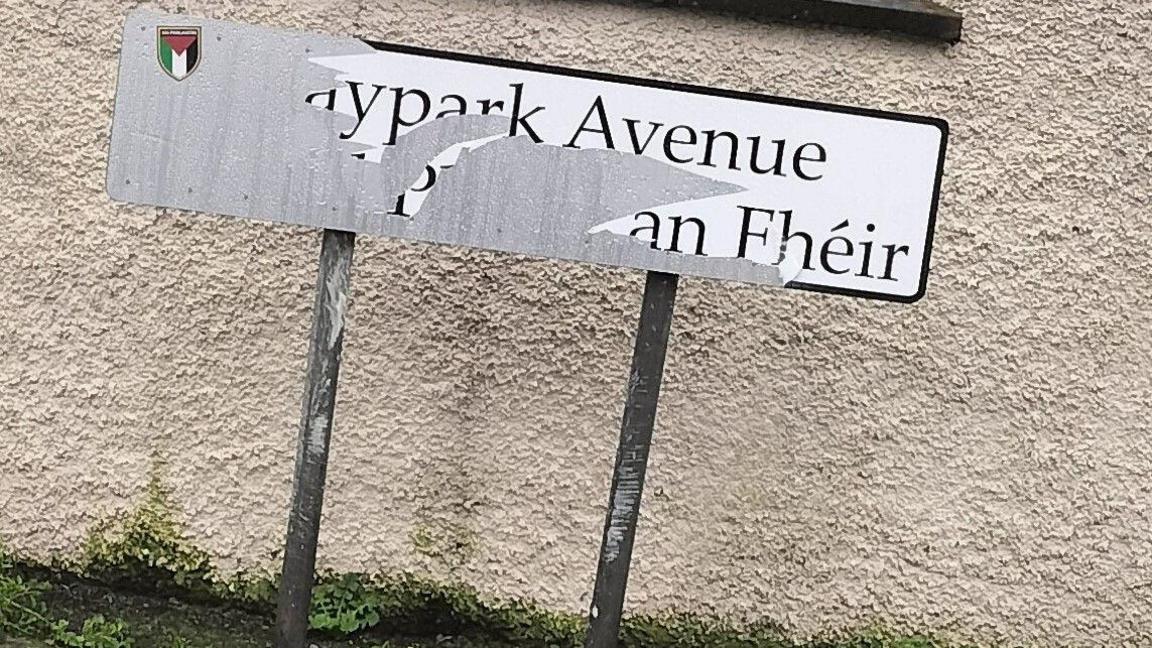
Last December, BBC News NI revealed that bilingual street signs in Northern Ireland had been vandalised more than 300 times in the previous five years
The UUP leader called on those who had campaigned for Belfast City Council's new Irish language policy "to think again about the implications".
He said those in favour of Irish signage were taking advantage of their majority in the council and not considering those who were uncomfortable with the changes.
"Majoritarianism can lead to street protests and to civil disobedience," Nesbitt warned.
He said the council's language vote had gone against the "spirit" of the 1998 Belfast Agreement peace deal under which people could choose to be British, Irish or both.
The UUP leader said he personally would support allowing council workers to choose whether or not they wanted to wear uniforms with bilingual signage
"Why can't we have choice? Why do we have to impose things?" he asked.
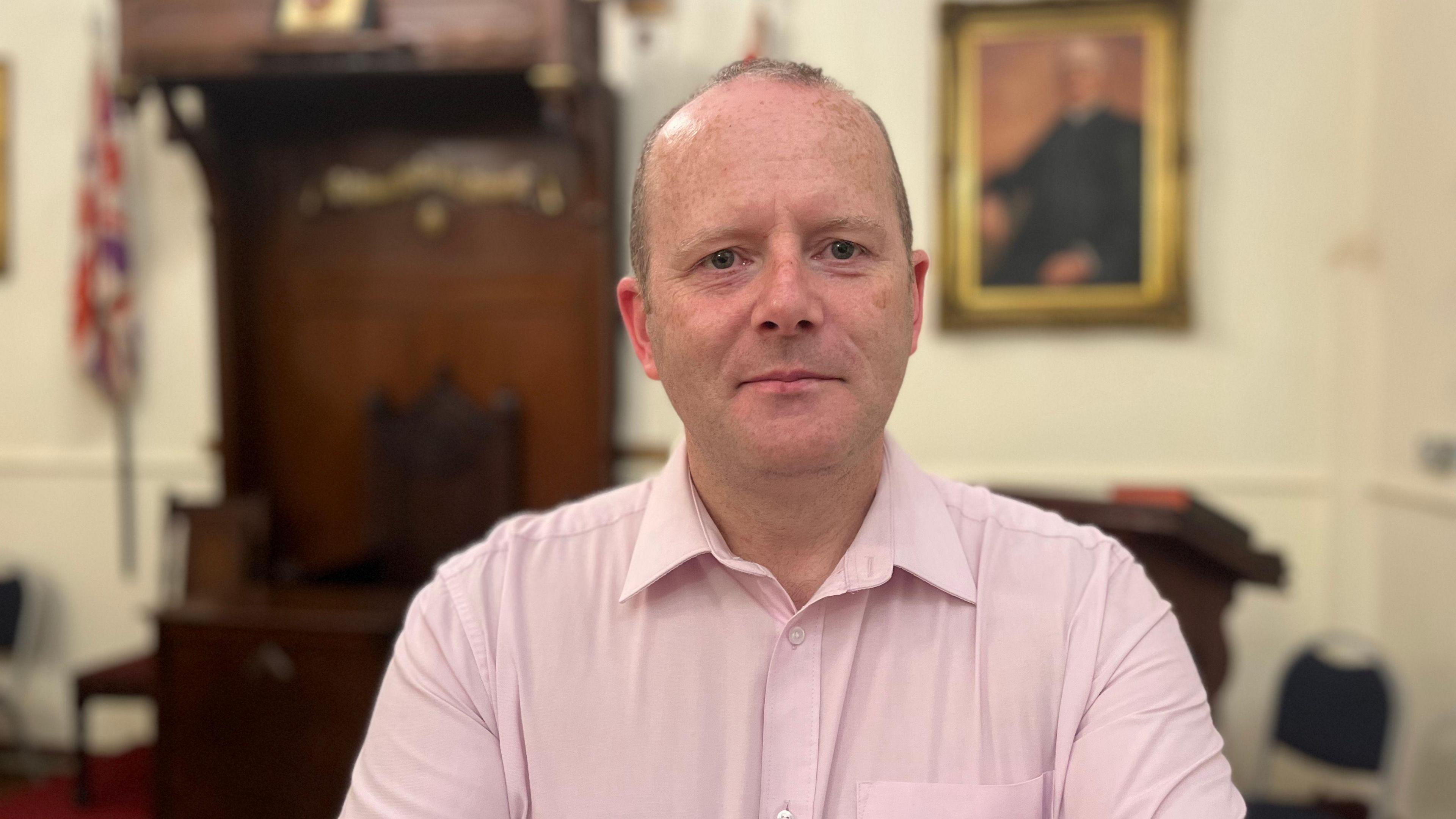
TUV councillor Ron McDowell says the vandalisation of Irish language signs is "predictable"
McDowell, from the TUV, told the same programme that attacking street signs was "a crime" that could result in a criminal record.
"You can lose your job, you can be fined, you can go to jail, so I would discourage anybody who is thinking of about damaging any of these signs," he said.
But he added that the issue had "really agitated people" and the vandalisation of Irish signs was "probably the most predictable crime in Northern Ireland".
"We've been warning about the imposition and the provocation of the Irish language going into unionist areas for years now.
"And the unrelenting approach from Irish language enthusiasts would tell you that they don't care, they're just prepared to steamroller everybody in their path."
He pointed out more Shandon Park residents objected to the signs than supported them, so the decision to force through change was "damaging for good relations".
However Carl Whyte from the Social Democratic and Labour Party (SDLP) argued that the council's policy was adopted to protect minority languages.
"I want someone to tell me why Irish language speakers are the only minority who have to form themselves into a majority in order for their rights to be granted."
The Belfast councillor also claimed bilingual signage had widespread support and there was only "a handful of streets where people have been opposed".
Belfast City Council's website shows up to 19 August 2025, some 256 streets have been approved for bilingual signs with applications pending for another 829 streets.
It also shows that in residents' surveys, 20 streets failed to reach the threshold of 15% support which is required to trigger the council to consider new signage.
Related topics
- Published11 October

- Published6 October
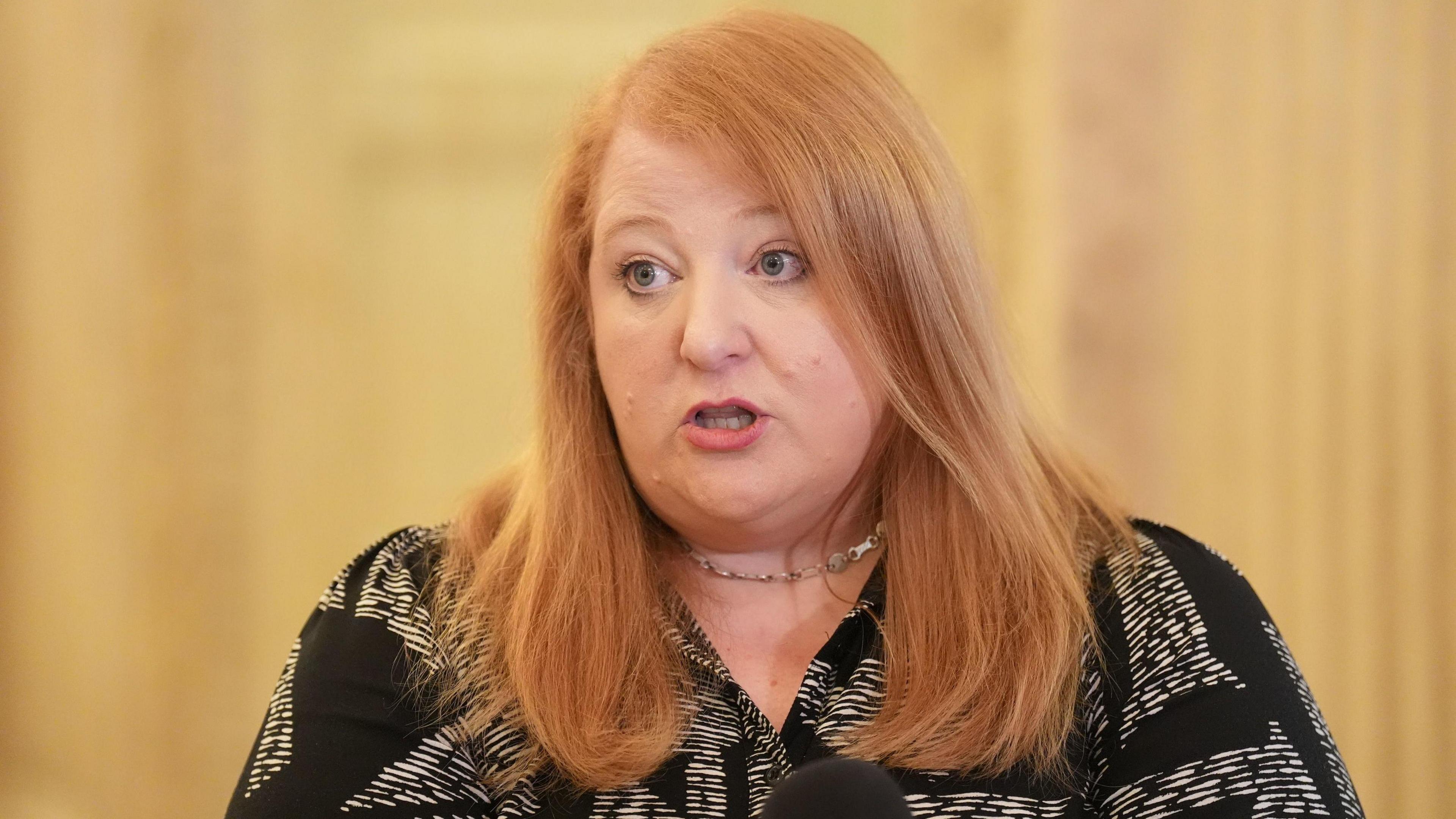
- Published1 October
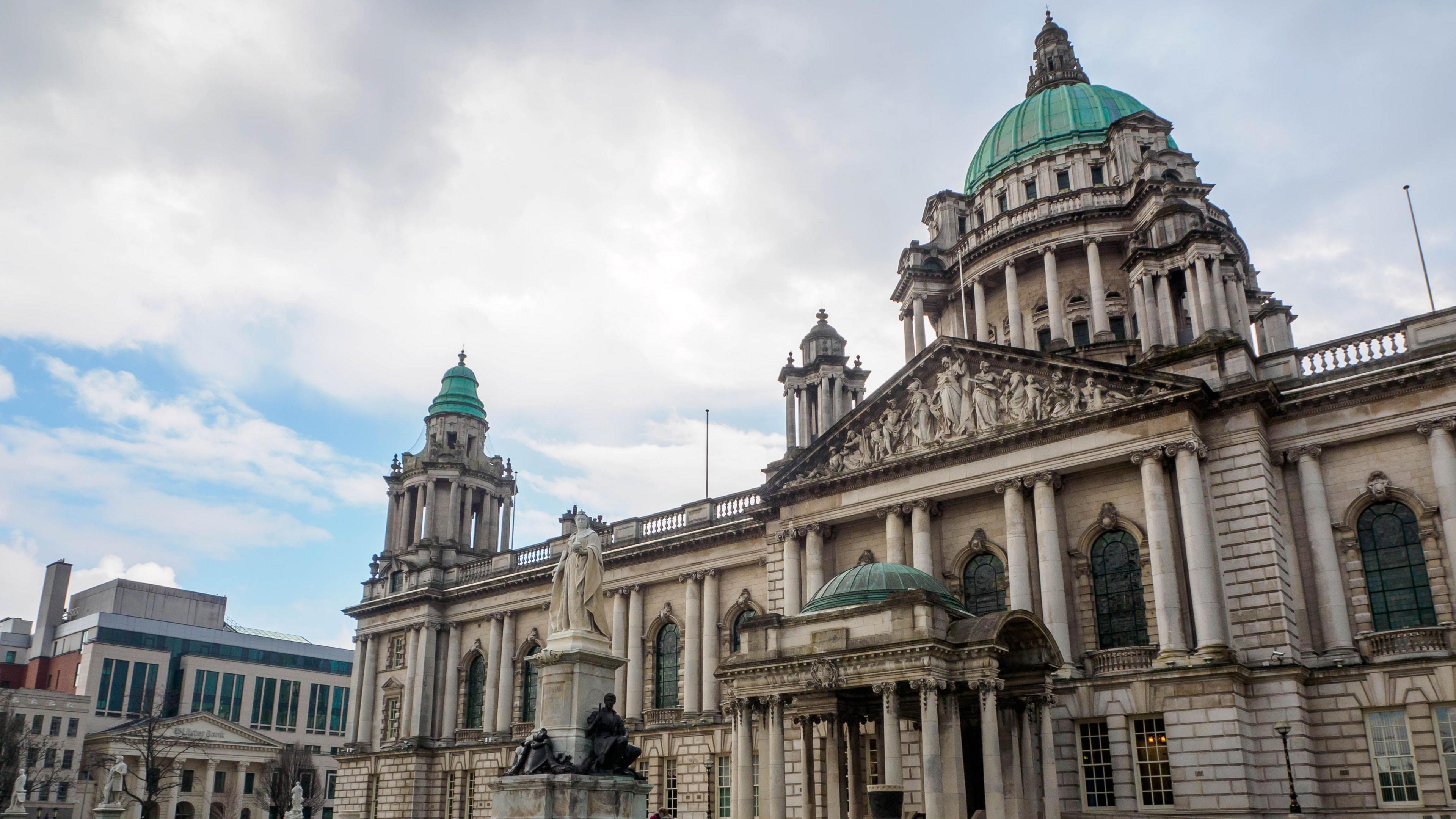
- Published2 December 2024
